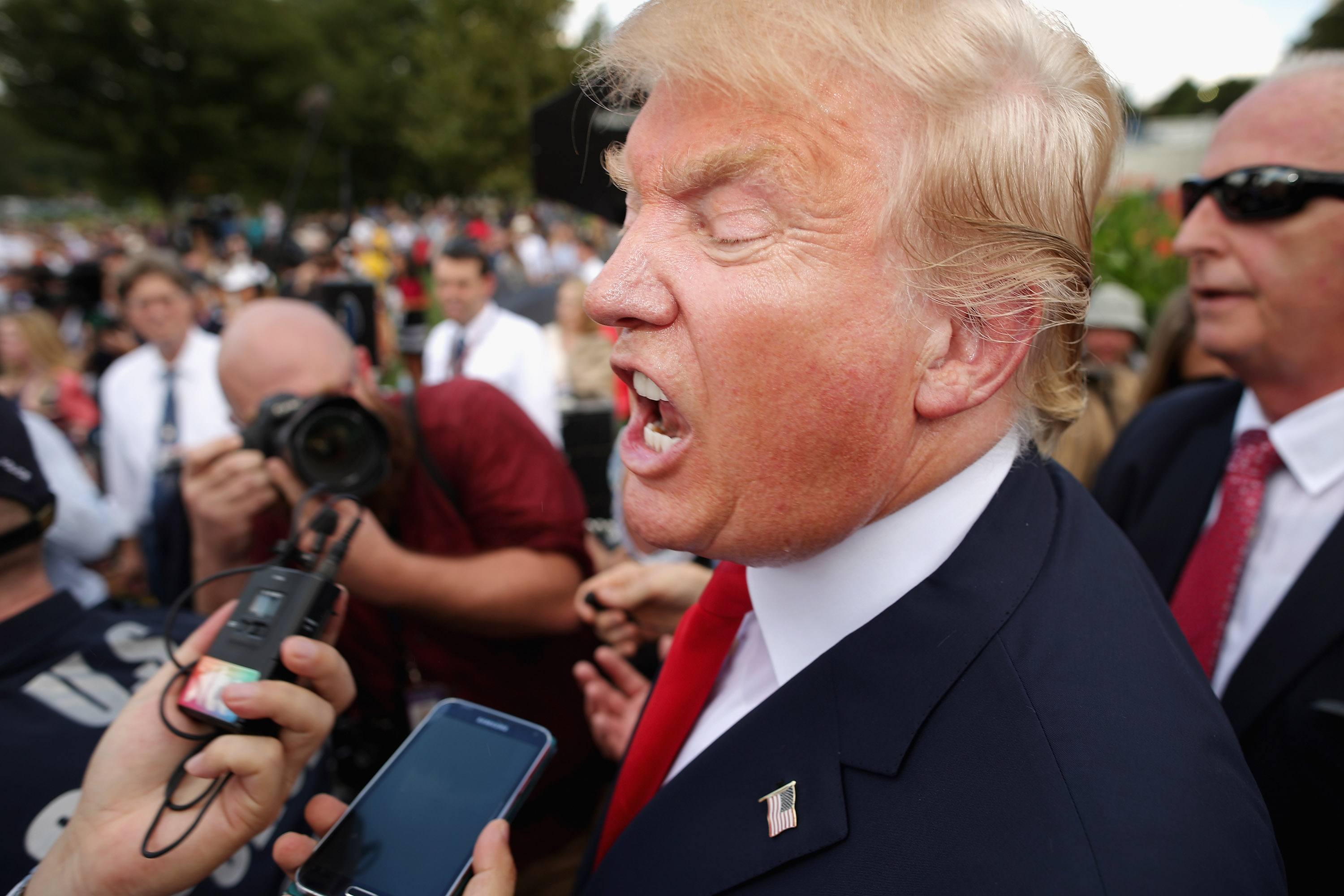Why Donald Trump's broken English is actually his secret weapon
Laugh all you want, grammar snobs. But spelling "honor" wrong actually helps Trump's populist appeal.


A free daily email with the biggest news stories of the day – and the best features from TheWeek.com
You are now subscribed
Your newsletter sign-up was successful
If you're anything like me, you have been watching the acceleration of the Trump train with naked horror.
The Republican Party I support is being taken over by a con artist. And sadly, I've seen this movie before.
The best parallel to Trump is a politician in my home country of France, Jean-Marie Le Pen. As the far-right Le Pen rose, most of the attacks against him seemed to only make him stronger, just like Trump. Both Trump and Le Pen appeal to a large segment of voters: downscale whites who have seen their identity and social status threatened by globalization, immigration, and multiculturalism. I've had to watch in despair as anti-Le Pen forces, and the anti-Trump brigade, are too contemptuous to stop and understand the phenomenon they're facing, instead shooting themselves in the foot over and over and over again.
The Week
Escape your echo chamber. Get the facts behind the news, plus analysis from multiple perspectives.

Sign up for The Week's Free Newsletters
From our morning news briefing to a weekly Good News Newsletter, get the best of The Week delivered directly to your inbox.
From our morning news briefing to a weekly Good News Newsletter, get the best of The Week delivered directly to your inbox.
Populists like Le Pen and Trump feed on a very simple message: There's an elite, and then there's you, the people. The elite not only don't care about you, but they actively despise you, and they are hurting you. But I'm not hurting you — I'm on your side.
Trump's manner of speaking reinforces that message perfectly. And your classist mockery of it reinforces the message doubly so.
As many critics gleefully point out, Trump is not very good with the English language. He certainly doesn't speak like someone you would think of as a presidential candidate. It's not just his Northeastern accent. He occasionally screws up with spelling and grammar.
Trump gets mocked a lot for this. Especially on Twitter, and especially by people like me — card-carrying members of the media elite. On Friday morning, Trump misspelled "honor" and "lightweight" on Twitter. The high priests of Manhattan media were almost beside themselves with delight.
A free daily email with the biggest news stories of the day – and the best features from TheWeek.com
So let me say this in a way you elites can understand: As David Foster Wallace explains in a brilliant essay on English usage, there isn't just one "English." As elite liberals are apt to understand in other contexts, what we call Standard English is really just one dialect of English — the English of rich, educated, largely white English speakers. There are many other dialects in English, associated with different regions, ethnicities, classes, and so on.
Trump speaks the language of his voters — unlike other presidential candidates, and unlike people who go on TV to be professional pundits. And what does Trump tell these voters? That the elite are against them. That they despise them. And what do elites do? Prove Trump right by sneering at a Trump trait that he shares with many of his voters.
Trump and his voters don't speak Standard English, nor do they speak its cousin dialect, Politically Correct English. As Mother Jones' Kevin Drum points out, many people dislike political correctness, not because they secretly harbor bigoted views, or because they have a principled belief in a culture of free inquiry, but simply because Politically Correct English is a foreign dialect, which changes frequently and unpredictably. And if you don't always master its nuances, you might suffer withering social opprobrium. (You're not exactly sure what gender to refer to Caitlyn Jenner as? You bigot!)
As the French thinker Pierre Bourdieu pointed out many decades ago, such systems of etiquette often function as ways for the ruling class to control the ruled, enforce class privilege, and keep the ladder to the upper class nice and slippery. And this particular form of social control only seems to be exercised against one type of person.
Trump connects with the white working class, with the socially downtrodden, with the frustrated and despairing, and with the poorly educated and financially struggling not in spite of his rough-edged manner of speaking, but because of it. The wealthy, urban elite ought to remember that before they turn Trump's misspellings into a cocktail party punch line.
Pascal-Emmanuel Gobry is a writer and fellow at the Ethics and Public Policy Center. His writing has appeared at Forbes, The Atlantic, First Things, Commentary Magazine, The Daily Beast, The Federalist, Quartz, and other places. He lives in Paris with his beloved wife and daughter.
